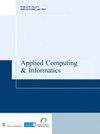Cyber threat: its origins and consequence and the use of qualitative and quantitative methods in cyber risk assessment
IF 4.9
Q1 COMPUTER SCIENCE, INFORMATION SYSTEMS
引用次数: 1
Abstract
PurposeConsumers increasingly rely on organisations for online services and data storage while these same institutions seek to digitise the information assets they hold to create economic value. Cybersecurity failures arising from malicious or accidental actions can lead to significant reputational and financial loss which organisations must guard against. Despite having some critical weaknesses, qualitative cybersecurity risk analysis is widely used in developing cybersecurity plans. This research explores these weaknesses, considers how quantitative methods might address the constraints and seeks the insights and recommendations of leading cybersecurity practitioners on the use of qualitative and quantitative cyber risk assessment methods.Design/methodology/approachThe study is based upon a literature review and thematic analysis of in-depth qualitative interviews with 16 senior cybersecurity practitioners representing financial services and advisory companies from across the world.FindingsWhile most organisations continue to rely on qualitative methods for cybersecurity risk assessment, some are also actively using quantitative approaches to enhance their cybersecurity planning efforts. The primary recommendation of this paper is that organisations should adopt both a qualitative and quantitative cyber risk assessment approach.Originality/valueThis work provides the first insight into how senior practitioners are using and combining qualitative and quantitative cybersecurity risk assessment, and highlights the need for in-depth comparisons of these two different approaches.网络威胁:其起源和后果以及在网络风险评估中定性和定量方法的使用
消费者越来越依赖组织提供在线服务和数据存储,而这些机构则寻求将其持有的信息资产数字化,以创造经济价值。由恶意或意外行为引起的网络安全故障可能导致重大的声誉和财务损失,这是组织必须防范的。定性网络安全风险分析在制定网络安全计划中被广泛应用,尽管存在一些关键的弱点。本研究探讨了这些弱点,考虑了定量方法如何解决这些限制,并寻求领先的网络安全从业者对使用定性和定量网络风险评估方法的见解和建议。设计/方法/方法本研究基于文献综述和专题分析,对来自世界各地的16位代表金融服务和咨询公司的高级网络安全从业人员进行了深入的定性访谈。虽然大多数组织继续依赖定性方法进行网络安全风险评估,但一些组织也积极使用定量方法来加强其网络安全规划工作。本文的主要建议是,组织应采用定性和定量的网络风险评估方法。独创性/价值这项工作首次深入了解了高级从业人员如何使用和结合定性和定量网络安全风险评估,并强调了对这两种不同方法进行深入比较的必要性。
本文章由计算机程序翻译,如有差异,请以英文原文为准。
求助全文
约1分钟内获得全文
求助全文
来源期刊

Applied Computing and Informatics
Computer Science-Information Systems
CiteScore
12.20
自引率
0.00%
发文量
0
审稿时长
39 weeks
期刊介绍:
Applied Computing and Informatics aims to be timely in disseminating leading-edge knowledge to researchers, practitioners and academics whose interest is in the latest developments in applied computing and information systems concepts, strategies, practices, tools and technologies. In particular, the journal encourages research studies that have significant contributions to make to the continuous development and improvement of IT practices in the Kingdom of Saudi Arabia and other countries. By doing so, the journal attempts to bridge the gap between the academic and industrial community, and therefore, welcomes theoretically grounded, methodologically sound research studies that address various IT-related problems and innovations of an applied nature. The journal will serve as a forum for practitioners, researchers, managers and IT policy makers to share their knowledge and experience in the design, development, implementation, management and evaluation of various IT applications. Contributions may deal with, but are not limited to: • Internet and E-Commerce Architecture, Infrastructure, Models, Deployment Strategies and Methodologies. • E-Business and E-Government Adoption. • Mobile Commerce and their Applications. • Applied Telecommunication Networks. • Software Engineering Approaches, Methodologies, Techniques, and Tools. • Applied Data Mining and Warehousing. • Information Strategic Planning and Recourse Management. • Applied Wireless Computing. • Enterprise Resource Planning Systems. • IT Education. • Societal, Cultural, and Ethical Issues of IT. • Policy, Legal and Global Issues of IT. • Enterprise Database Technology.
 求助内容:
求助内容: 应助结果提醒方式:
应助结果提醒方式:


